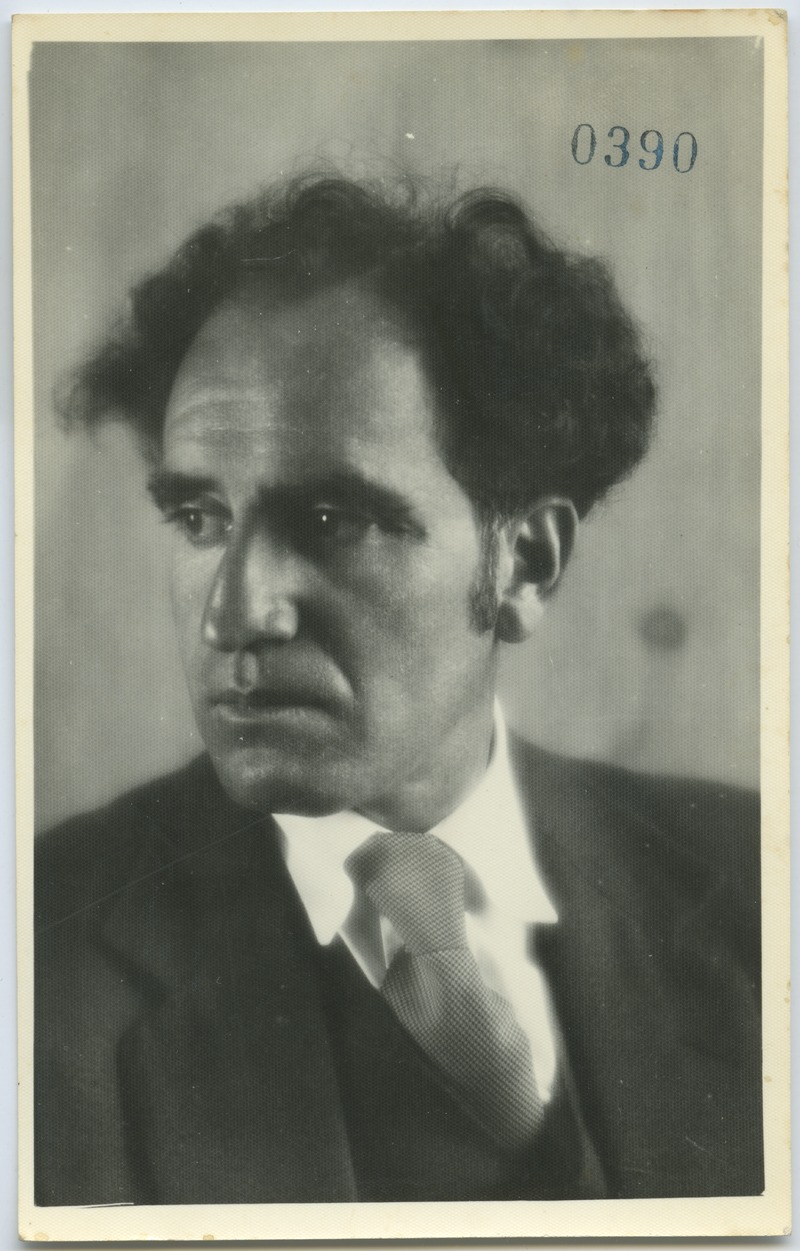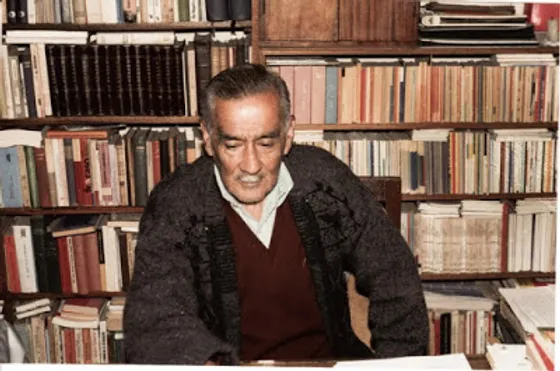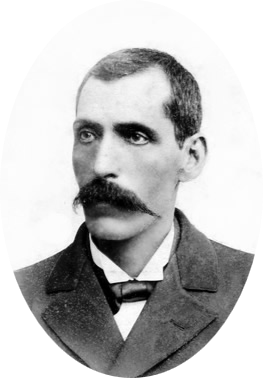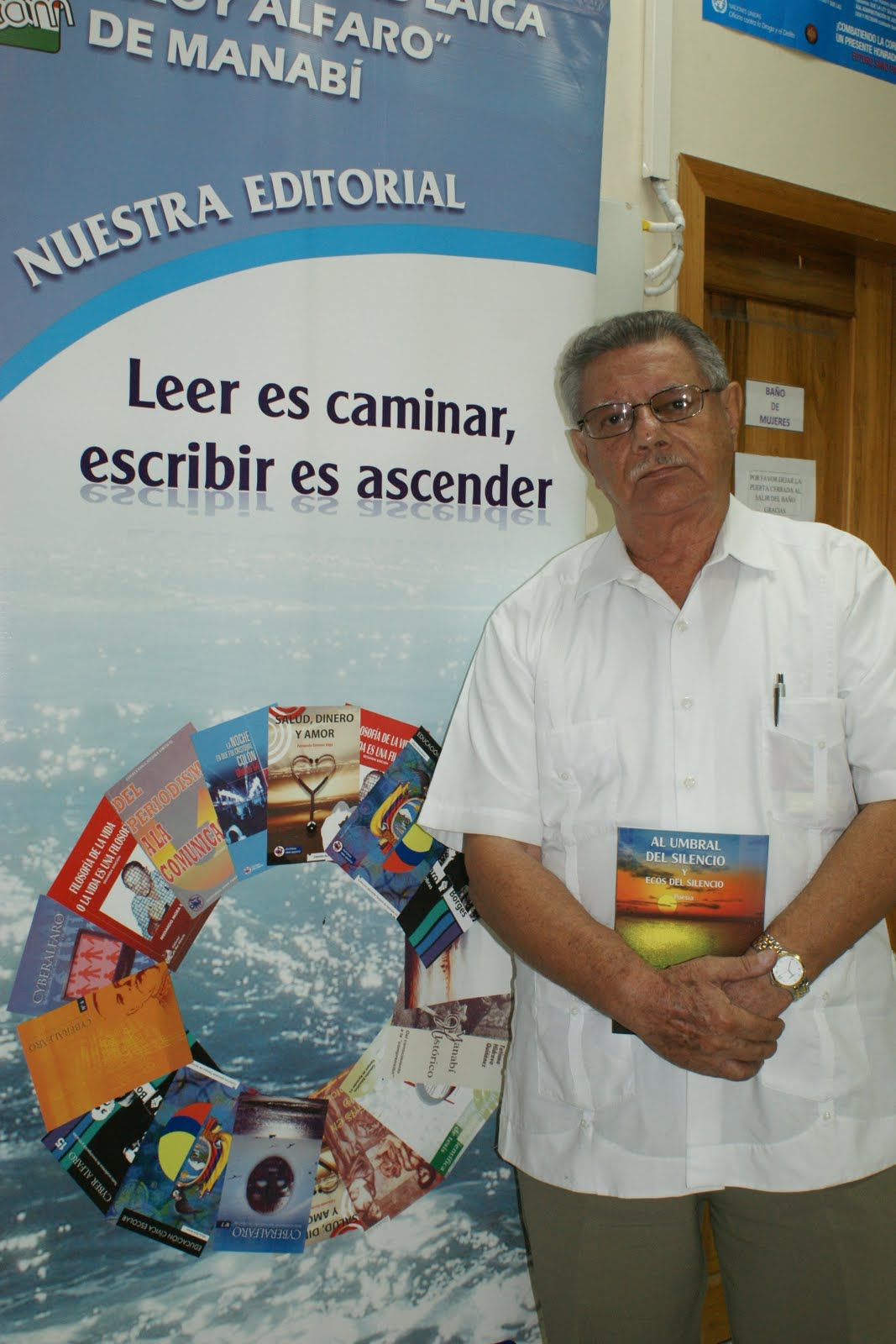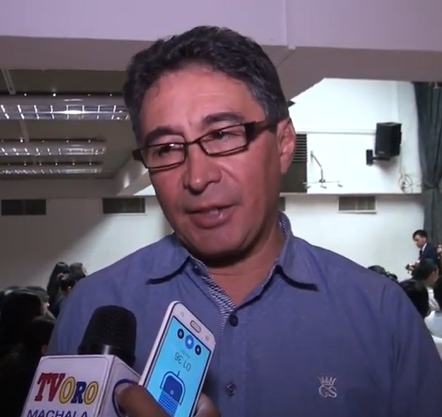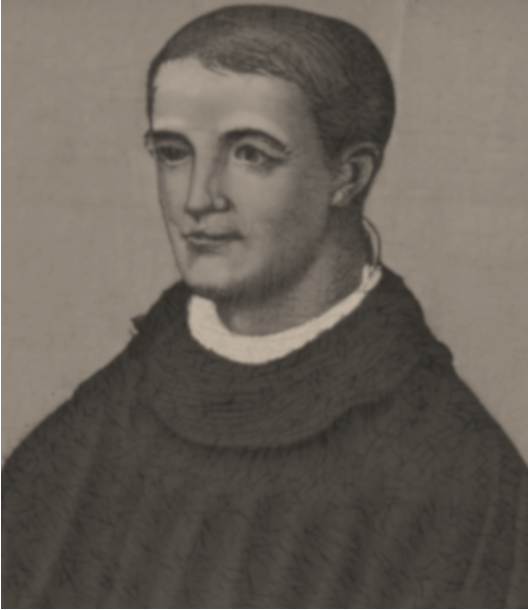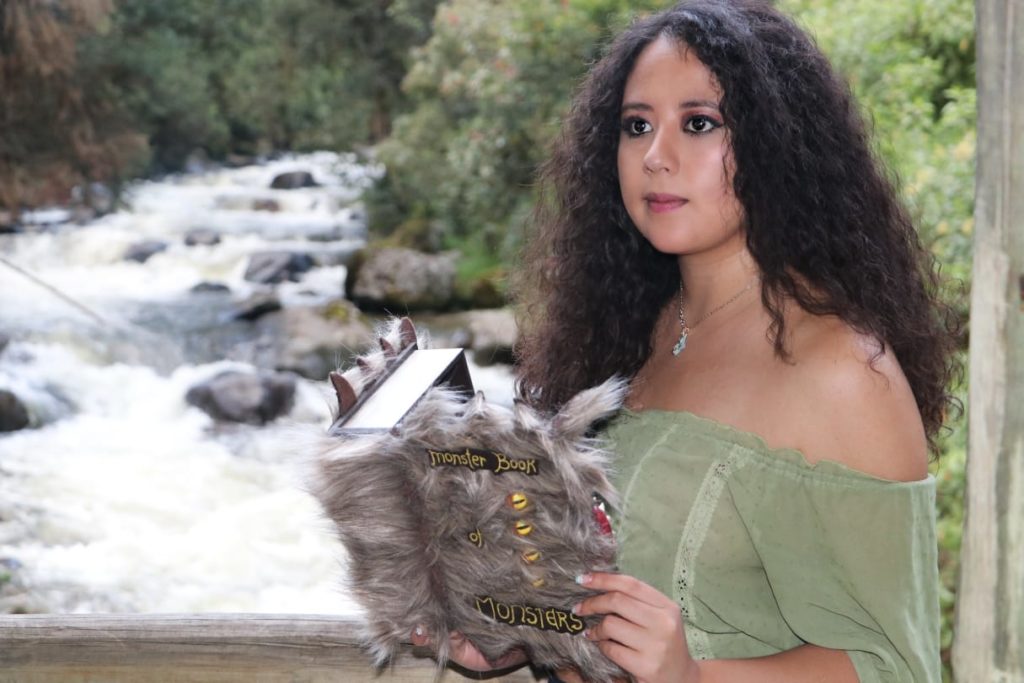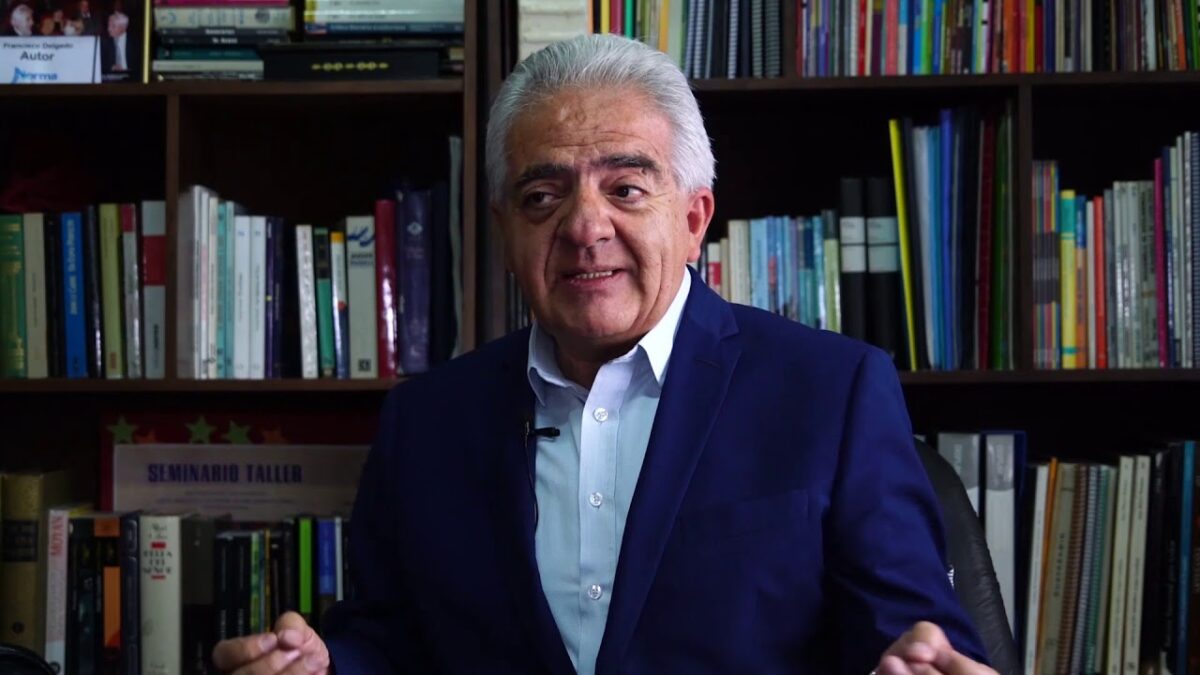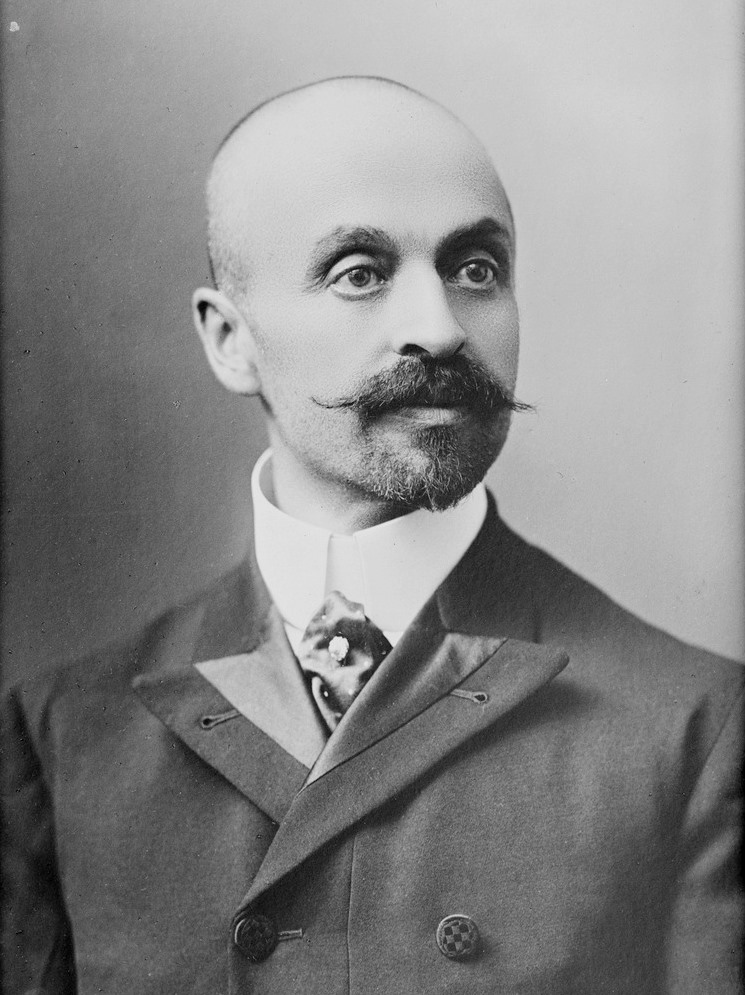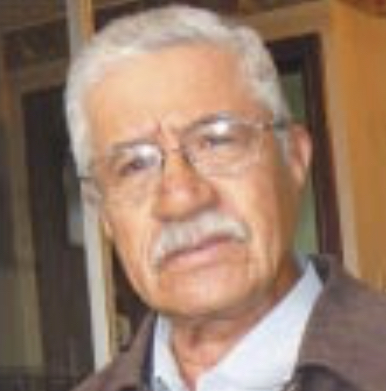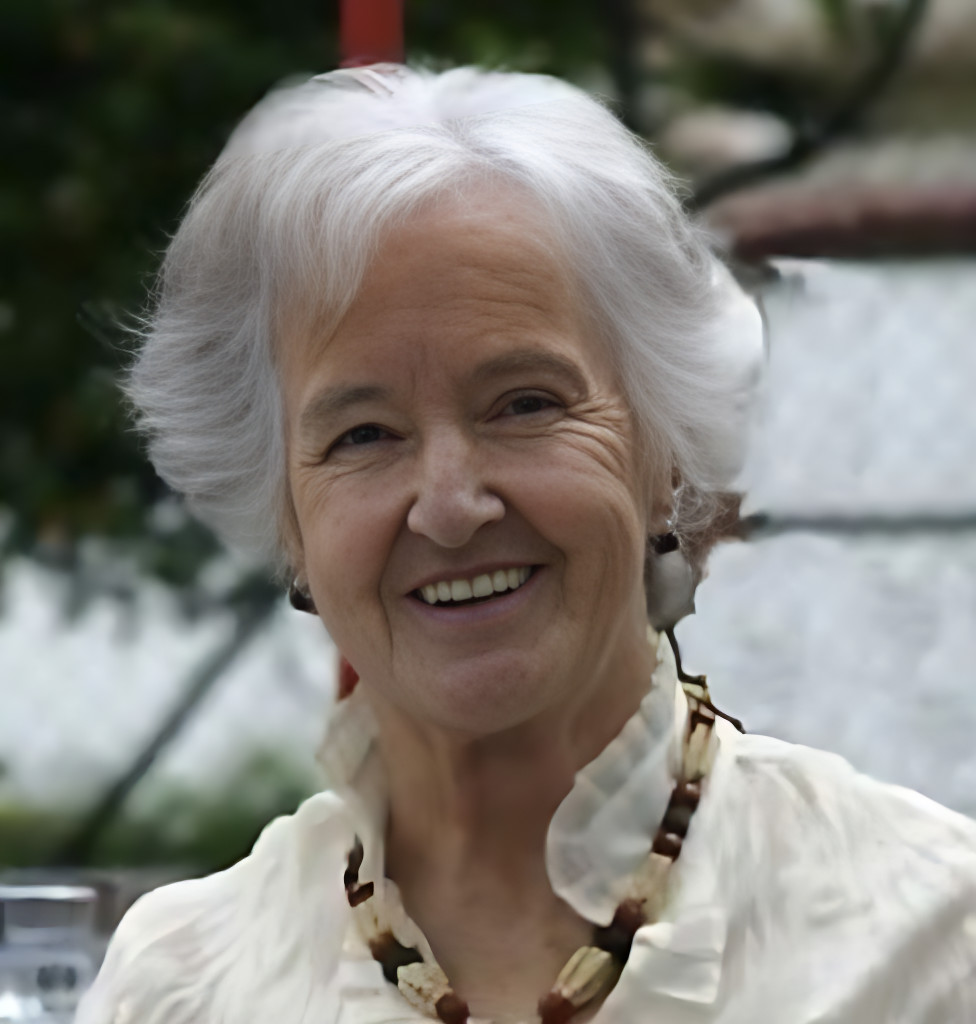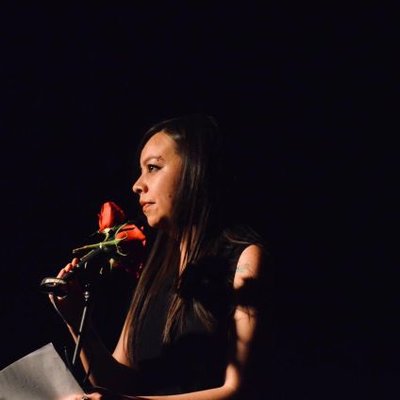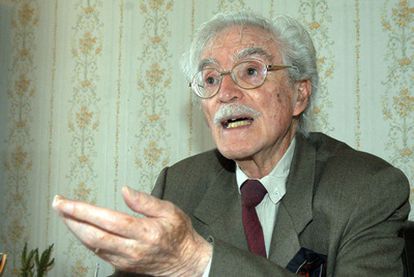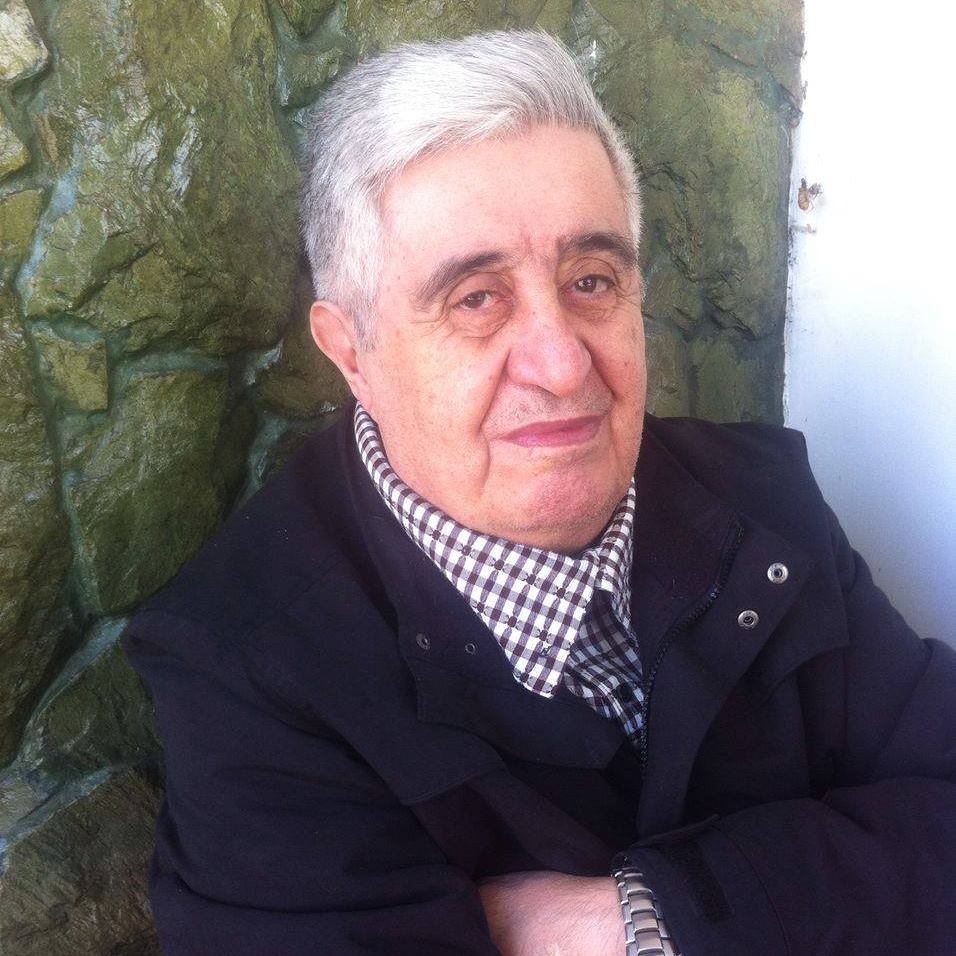Manuel Nicolás Arízaga Machuca (Cuenca, December 12, 1856 – December 28, 1906) was an Ecuadorian lawyer, poet, journalist, and politician. Born into a prominent family, he became known for his involvement in revolutionary activities against the dictatorship of Ignacio de Veintemilla and later served as a Deputy in Ecuador’s National Convention. A prolific writer, he contributed poetry, essays, and political articles to numerous publications, often advocating conservative ideals and Ecuadorian nationalism. Arízaga spent multiple periods in exile, where he continued his literary work, including the collection Voces del Destierro. His literary and political contributions left a lasting impact on Ecuadorian intellectual and public life.
Continue reading “Manuel Nicolás Arízaga”Category: Writers from Cuenca
Rigoberto Cordero y León
Rigoberto Cordero y León (Cuenca, June 11, 1916 – Cuenca, August 1998) was an Ecuadorian poet, writer, and scholar whose work significantly contributed to the development of Ecuadorian literature. Known for his extensive body of poetry, biographies, and essays, his writings explored themes of music, culture, and national identity, and were translated into multiple languages. Cordero y León received numerous awards, including the Fray Vicente Solano Decoration, and curated anthologies that highlighted the richness of Cuenca’s literary tradition.
Continue reading “Rigoberto Cordero y León”Oswaldo Albornoz Peralta
Oswaldo Albornoz Peralta (Cuenca, May 8, 1920 – Quito, November 27, 2000) was an Ecuadorian historian, educator, and Marxist intellectual. Known for his critical works on Ecuadorian social history, Albornoz applied a Marxist lens to topics such as indigenous uprisings, labor movements, and the role of the church in Ecuador’s political development. He authored numerous influential books, including Historia de la Acción Clerical en el Ecuador (1963) and Bolívar: Visión Crítica (1990), and was a key figure in the Ecuadorian Communist Party. His contributions earned him national recognition, including an honorary doctorate from the Universidad Central del Ecuador.
Continue reading “Oswaldo Albornoz Peralta”Miguel Moreno Ordoñez
Dr. Miguel Moreno Ordóñez (Cuenca, March 3, 1851 – Cuenca, August 30, 1910) was an Ecuadorian poet, physician, politician, and philanthropist. After earning his medical degree from the University of Cuenca in 1876, he practiced medicine in Peru before returning to Ecuador, where he became known for his charitable work and religious devotion, including the construction of the Santo Cenáculo. A notable poet, he co-authored Sábados de Mayo (1877; “Saturdays in May”) and later published El Libro del Corazón (1907; “The Book of the Heart”). For his social and religious contributions, he was awarded the Papal Knighthood of the Order of St. Gregory the Great by Pope Pius X in 1907.
Continue reading “Miguel Moreno Ordoñez”Vicente Cuesta Ordóñez
Vicente Cuesta Ordóñez (Cuenca) is an Ecuadorian poet, writer, and physician known for his enduring dedication to Manta’s cultural scene. He was an active member of the Grupo Cultural Manta for nearly 50 years. Historian José Elías Sánchez Ramos described him as an “indefatigable writer and poet.” His poetry collections include Al Umbral del Silencio (1999) and Por los rincones del tiempo – Sonetos de una vida (2013). He also authored the historical study Historia de la Medicina en Manta (History of Medicine in Manta).
Iván Petroff Rojas
Iván Petroff Rojas (Cuenca, 1956) is an Ecuadorian writer, poet, and educator known for his contributions to contemporary literature. A prominent figure in the “new Cuenca literature” movement of the 1980s, he has published a diverse body of work that includes poetry, short stories, and essays. His writings often explore themes such as mythology, magic, and music, with a focus on the depth of human experience. Notable works like En las formas del amor y la guerra (1989) and Fuego cruzado (2020) showcase his ability to blend cultural and social commentary with narrative art. Petroff Rojas has also been influential in the cultural scene of Cuenca, serving as the president of the Casa de la Cultura Núcleo del Azuay and teaching at the University of Cuenca. His dedication to literature and culture has made him a significant voice in Ecuadorian arts and letters.
Continue reading “Iván Petroff Rojas”Pedro Pablo Berroeta
Pedro Pablo Berroeta (Cuenca, June 29, 1737 – Seville, Spain, July 15, 1821) was an acclaimed poet, Jesuit, and missionary, who left a remarkable footprint in the literature of the 18th century. Berroeta became a key figure during the Real Audiencia of Quito and is well-remembered for his masterpieces “La Pasión de Cristo,” a poem of 1026 royal octaves, and “Coplones del Viejo.” Despite facing expulsion from the Jesuit order and having to continue his religious work as a secular priest, Berroeta’s indomitable spirit led him to create profound literary works. His poetry, characterized by its raw emotional depth and nostalgic resonance, significantly shaped what is known as Cuenca poetics. Even two centuries after his death, Berroeta’s contribution to the literary world continues to be celebrated and studied.
Continue reading “Pedro Pablo Berroeta”Paola Cando
Paola Cando Bermeo (Cuenca, January 25, 1995) is an Ecuadorian writer and poet. Her journey in literature began in 2012 when she published “Parchís,” a collection of several young authors from the city of Cuenca. Two years later, she was part of the poetic anthology “Nuevas Voces de la Poesía Cuencana,” presented at the XII Encounter on Ecuadorian Literature by the State University of Cuenca. In 2015, along with numerous Latin American authors, she was featured in the poetic anthology “90 revoluciones,” published by the independent publisher Mecánica Giratoria. 2017 saw her collaborate with the independent publisher Ninacuro Cartonera on another poetic anthology titled “Cirugía inflamable.” In 2020, her poem “Chendoaventuras” was selected to be featured in the book “Poemas sobre dos ciudades.” This book compiled the winning entries from the Azogues and Cuenca 2020 Poetry Prize Competition, as well as additional poems from the same competition, chosen by the jury.
Continue reading “Paola Cando”Francisco Delgado
Francisco Delgado Santos (Cuenca, June 9, 1950) is an Ecuadorian writer, poet, and editor. Delgado Santos has made a significant contribution to Ecuadorian literature for children and young people with his extensive collection of over 50 published titles. With a deep passion for reading and writing, Delgado Santos believes in the transformative power of books, especially in shaping the imaginations and intellectual development of young readers. His works span across various genres and have garnered recognition and prestigious awards. Beyond his literary achievements, Delgado Santos has played a pivotal role in establishing the National Library System of Ecuador, expanding access to books and fostering a culture of reading throughout the country.
Continue reading “Francisco Delgado”Honorato Vázquez Ochoa
Honorato Vázquez Ochoa (Cuenca, October 21, 1855 – January 26, 1933) was an Ecuadorian diplomat, lawyer, educator, painter, grammarian, writer, and poet considered one of the most prominent figures of Cuencan lyricism in the 19th century. Vázquez’s literary works spanned different genres, including poetry, essays, and historical accounts. Notable among his works is the poetry book “Los sábados de mayo,” co-written with Miguel Moreno, which exemplified the tendencies of national romanticism in Ecuador. Vázquez’s poems, such as “Morenica del Rosario,” demonstrated his sentimentality and mastery of language, including the use of archaic Spanish. Furthermore, his contributions to the field of linguistics were notable, with regular essays on the Spanish language, Quechua, neologisms, and other language-related topics. In 1886, at the age of 31, he delivered his induction speech to the Ecuadorian Academy of Language, making him one of the youngest members to ever join.
Continue reading “Honorato Vázquez Ochoa”Alfredo Vivar
Alfredo Vivar (Cuenca, 1932 – unknown) was an Ecuadorian poet, painter, and civil engineer. He is perhaps best known for his poetry books, “Variaciones, natura, amor, soledad” (1978), “Sonsinfin Opus” (1984), and “Sonsinfin Opus 2” (1986). In 2012, the University of Cuenca published two poetry books from his cyclical series Sonsinfin: “Suele llama sola mi corazón” and “El mar azul… ¿Dónde es azul?” Eliecer Cárdenas, in the foreword of these volumes, emphasized the distinctiveness of Vivar’s poetry, characterized by its non-sequential nature and instantaneity. Jorge Dávila Vázquez once referred to Alfredo Vivar as “a lyricist who has not yet received the recognition he deserves.” Notably, Vivar’s poetry was also included in the anthology “Siete poetas,” which was published by the House of Ecuadorian Culture in 1990.
Continue reading “Alfredo Vivar”Teresa Crespo Toral
Teresa Crespo Toral (Cuenca, October 30, 1928 – Quito, February 15, 2014) was an Ecuadorian writer and a pioneer of children’s literature in her country. Her writings are considered classics of the genre and have been a source of inspiration for new generations of readers. From a young age, Teresa was deeply passionate about literature, and her love for the written word led her to compose her first poems. She authored several well-known books, including “Novena al Niño Jesús,” “Pepe Golondrina y otros cuentos,” “Mateo Simbaña,” which was studied at the University of Paris, and “Ana de los Ríos,” a book adapted into a film by the Convenio Andrés Bello. Teresa Crespo Toral received recognition through various awards, such as the Palma de Plata from the University of Cuenca and the first prize from the House of Ecuadorian Culture in Azuay, among others. She was married to the politician and historian Jorge Salvador Lara and had five children.
Issa Aguilar Jara
Issa Aguilar Jara (Cuenca, 1988) is an Ecuadorian poet and journalist. She has authored 3 critically-acclaimed poetry collections. Her debut poetry book, “Con M de mote se escribe Mojigata” (2018), fearlessly challenges the conservative aspects of her hometown with intimate and satirical verses, and delves into intimate themes, including her relationship with her father. Her second collection, “Poliamor town” (2020), delves into themes of love, diverse relationships, and the complexities of human connections. In 2022, her latest book, “Dos tragos de sinestesia o El diablo verde,” won the prestigious César Dávila Andrade National Poetry Prize, further solidifying her reputation as a notable voice in contemporary Ecuadorian poetry. Aguilar’s work has resonated with readers, particularly the younger generation, making her books popular in Cuenca.
Continue reading “Issa Aguilar Jara”Carlos Joaquín Córdova Malo
Carlos Joaquín Córdova Malo (Cuenca, April 22, 1914 – Quito, December 19, 2011) was an accomplished linguist, writer, and government official. He obtained his law degree from the State University of Cuenca. He authored several works, including “Cestmir Loukotka y la clasificación de las lenguas indígenas del Ecuador,” “El habla del Ecuador-Diccionario de Ecuatorianismos,” “Un millar de anglicismos,” and “Hojeada sobre la lexicografía ecuatoriana,” among others. He held various government positions, including serving as a Superintendent of Banks, a member of the Monetary Board, and as the Director of the Andean Mission in Ecuador. He was also a member of the Ecuadorian Academy of Language and served as its director from 1998 until his resignation in 2008. Throughout his career, Córdova Malo received numerous honors and awards for his contributions to Ecuadorian culture and language, including the National Order of Merit in the rank of Commander from the Ecuadorian government, the “Vicente Rocafuerte” Cultural Merit Award from the National Congress, and the “Aurelio Espinosa Pólit” decoration from the Metropolitan District of Quito. He was also a corresponding member of the Uruguayan and North American Academies of Language.
Continue reading “Carlos Joaquín Córdova Malo”Alberto Ordoñez Ortíz
Alberto Ordoñez Ortíz (Cuenca, March 16, 1942 – Ibidem, August 29, 2022) was an Ecuadorian poet, writer, and lawyer. During the last years of his life he worked as an opinion columnist for the daily El Mercurio of Cuenca. From 1962 – 2004 he published at least 10 poetry books. As a poet, he won various awards, including First Prize in the 1963 National Poetry Contest sponsored by the State University of Cuenca, Second Prize in the 1978 Ismael Pérez Pazmiño Poetry Contest for Perfil del hombre y su desvelo, and the First Prizes in the 1992 Poetry Contests promoted by the Ecuadorian Social Security Institute of Ecuador. In 2003, the Municipality of Cuenca awarded him the “Fray Vicente Solano” Award, an award given to the best poet of the year in Cuenca, and in that same year, the National Congress of Ecuador awarded him the “Vicente Rocafuerte” Prize, in recognition of his literary work and contribution to Ecuadorian poetry.
Continue reading “Alberto Ordoñez Ortíz”
